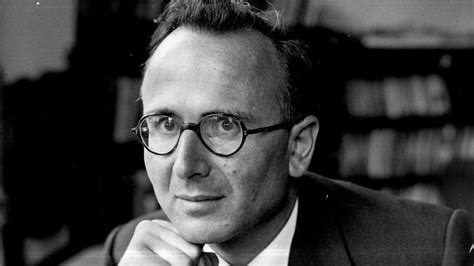A Quote by Flannery O'Connor
Those who have no absolute values cannot let the relative remain merely relative; they are always raising it to the level of the absolute.
Related Quotes
You can't relate to an absolute or it wouldn't be absolute, it would be relative. On an intellectual level, that's easy. However, you hear theologians in the theistic traditions talk about absolute God, and I saw God, or God spoke; speaking, being seen, these are all relational things. So what is absolute about such a being, wouldn't actually be absolute.
People are, by and large, quite poor at judging correct absolute values but are astute about determining relative values. Psychologists call this coherent arbitrariness, which suggests that individuals are coherent when they compare prices on a relative basis but arbitrary when those prices are considered versus fundamental value.
Allah is in Himself the non-being and the being, the inexistent and the existent. He is at the same time that which we designate by absolute non-being and by absolute being; or by relative non-being and relative being. . . . All these designation come back to God alone, for there is nothing which we can perceive, know, write or say which is not Him.
If there is no absolute moral standard, then one cannot say in a final sense that anything is right or wrong. By absolute we mean that which always applies, that which provides a final or ultimate standard. There must be an absolute if there are to be morals, and there must be an absolute if there are to be real values. If there is no absolute beyond man's ideas, then there is no final appeal to judge between individuals and groups whose moral judgments conflict. We are merely left with conflicting opinions.
A modern theory of knowledge which takes account of the relational as distinct from the merely relative character of all historical knowledge must start with the assumption that there are spheres of thought in which it is impossible to conceive of absolute truth existing independently of the values and position of the subject and unrelated to the social context.
It is not given to man to know the whole Truth. His duty lies in living up to the truth as he sees it, and in doing so, to resort to the purest means, i.e., to non-violence. God alone knows absolute truth. Therefore, I have often said, Truth is God. It follows that man, a finite being, cannot know absolute truth. Nobody in this world possesses absolute truth. This is God's attribute alone. Relative truth is all we know. Therefore, we can only follow the truth as we see it. Such pursuit of truth cannot lead anyone astray.
When you put relative and absolute truth together and they become one unit, it becomes possible to make things workable. You are not too much on the side of absolute truth, or you would become too theoretical. You are not too much on the side of relative truth, or you would become too precise. When you put them together, you realize that there is no problem.







































